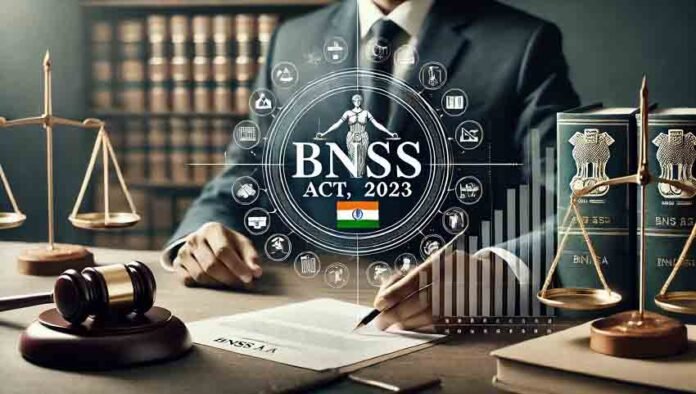The Supreme Court’s omission of the word ‘minor’ in Section 125 CrPC under BNSS sets a significant precedent impacting maintenance claims beyond personal laws.
Subheading (Intro Sentence):
The Supreme Court’s interpretation of Section 125 CrPC, particularly under the BNSS judgment, redefines maintenance provisions by omitting the term ‘minor,’ broadening support for dependents.
Understanding Section 125 of the Code of Criminal Procedure
Section 125 of the Code of Criminal Procedure, 1973 (CrPC) stands as a critical social welfare provision designed to secure maintenance for wives, children, and parents. Enshrined under Chapter IX, this section aims to protect those unable to maintain themselves by compelling legally obligated persons—usually husbands or fathers—to provide financial support.
What distinguishes Section 125 is its operation beyond personal laws. Unlike family laws, which vary based on religion and customs, Section 125 serves as a secular provision that overrides personal legal codes to ensure a minimum standard of maintenance, reflecting the state’s commitment to social justice.
The Landmark BNSS Judgment and Omission of ‘Minor’
The recent Supreme Court judgment in BNSS vs. State of Jammu and Kashmir marks a paradigm shift in interpreting Section 125. A pivotal feature of this judgment is the omission of the word ‘minor’ in the context of children entitled to maintenance. Traditionally, the obligation to maintain a child was primarily restricted to minors (usually under 18 years).
The Court ruled that excluding ‘minor’ broadens the scope of maintenance obligations, extending support beyond the age of majority under certain circumstances. This ruling recognizes the changing social and economic realities where young adults may continue to require financial support due to education, disability, or unemployment.
Precedents and Supreme Court’s Progressive Outlook
The Supreme Court’s progressive approach is consistent with earlier rulings, including the notable case of Fuzlunbi vs. K. Khader Vali & Anr. (1980) 4 SCC 125, where the Court emphasized the social welfare nature of Section 125. In Fuzlunbi, the Court held that the law’s primary aim is to prevent destitution and vagrancy by ensuring timely financial assistance to dependents.
Similarly, BNSS extends this philosophy by adapting the provision to contemporary realities where dependents may not be financially independent at 18 or upon attaining majority.
Implications of the Omission of ‘Minor’
The omission of ‘minor’ is a major change with wide-reaching implications:
- Extended Maintenance Claims: Adult children pursuing education or unable to earn due to physical or mental disabilities may claim maintenance beyond 18 years.
- Judicial Discretion Enhanced: Courts now have broader discretion to assess the financial needs and circumstances of claimants rather than rigidly adhering to age limits.
- Uniform Application Across Personal Laws: The judgment further strengthens Section 125’s role as a secular law, ensuring uniformity irrespective of religious or personal laws.
- Impact on Maintenance Orders: Maintenance orders under BNSS may now reflect longer durations and higher amounts if justified by circumstances.
Challenges and Legal Considerations
While the judgment promotes social welfare, it also raises certain challenges:
- Potential for Litigation: The removal of a clear age cutoff may lead to increased litigation as claimants seek to prove ongoing need for maintenance.
- Balancing Obligations: Courts will need to balance the obligation of the maintenance provider with the actual needs and potential earning capacity of the claimant.
- Consistency in Application: Varying interpretations across courts could create unpredictability unless clear guidelines are developed.
Broader Social and Legal Impact
The BNSS judgment resonates with India’s constitutional ethos of dignity and equality. It aligns with Article 21, which guarantees the right to life and personal liberty, including access to livelihood and maintenance for dependents.
Moreover, it complements the government’s broader social welfare framework that seeks to reduce poverty and social vulnerability by ensuring financial security for dependents, particularly women and children.
Practical Guidance for Stakeholders
- For Claimants: Adult children and parents should be aware that maintenance claims may extend beyond traditional age limits under Section 125 post-BNSS.
- For Maintenance Providers: Obligors must prepare for potentially extended maintenance responsibilities and seek legal counsel to understand their obligations.
- For Legal Practitioners: Lawyers should focus on building strong factual cases demonstrating the necessity of maintenance beyond minority, including educational status, disability, and unemployment.
- For Judiciary: Courts must adopt a balanced, fact-sensitive approach to avoid misuse while upholding the welfare objectives of the law.
Conclusion: A Progressive Step in Maintenance Law
The omission of the word ‘minor’ under Section 125 CrPC as per the BNSS judgment represents a significant evolution in Indian maintenance law. By recognizing the extended needs of dependents beyond childhood, the Supreme Court has underscored the law’s social justice mission.
This ruling not only strengthens the protective ambit of Section 125 but also pushes Indian family and criminal law closer towards inclusivity and realism, addressing contemporary socio-economic challenges.
For a detailed analysis of such landmark judgments and their legal implications, visit our Views & Insight section.
Watch Legal Experts Discuss Maintenance Law
📺 For comprehensive discussions and expert opinions on maintenance law and related reforms, watch our YouTube channel: @TheLegalObserver
Internal Links Embedded:
External Link:




